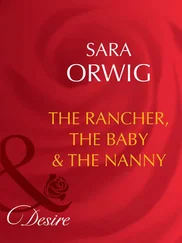Sara Alexi - The Illegal Gardener
Здесь есть возможность читать онлайн «Sara Alexi - The Illegal Gardener» весь текст электронной книги совершенно бесплатно (целиком полную версию без сокращений). В некоторых случаях можно слушать аудио, скачать через торрент в формате fb2 и присутствует краткое содержание. Год выпуска: 2012, Издательство: Oneiro Press, Жанр: Современная проза, на английском языке. Описание произведения, (предисловие) а так же отзывы посетителей доступны на портале библиотеки ЛибКат.
- Название:The Illegal Gardener
- Автор:
- Издательство:Oneiro Press
- Жанр:
- Год:2012
- ISBN:нет данных
- Рейтинг книги:3 / 5. Голосов: 1
-
Избранное:Добавить в избранное
- Отзывы:
-
Ваша оценка:
- 60
- 1
- 2
- 3
- 4
- 5
The Illegal Gardener: краткое содержание, описание и аннотация
Предлагаем к чтению аннотацию, описание, краткое содержание или предисловие (зависит от того, что написал сам автор книги «The Illegal Gardener»). Если вы не нашли необходимую информацию о книге — напишите в комментариях, мы постараемся отыскать её.
The Illegal Gardener — читать онлайн бесплатно полную книгу (весь текст) целиком
Ниже представлен текст книги, разбитый по страницам. Система сохранения места последней прочитанной страницы, позволяет с удобством читать онлайн бесплатно книгу «The Illegal Gardener», без необходимости каждый раз заново искать на чём Вы остановились. Поставьте закладку, и сможете в любой момент перейти на страницу, на которой закончили чтение.
Интервал:
Закладка:
“Are you expecting to get more translation work out there, or do you think just because you speak the language you will just fit in and get a job? I mean, we had a great time when we went. It was hilarious, but it was only two weeks and it was, well, ages ago.”
“Nothing’s changed Michelle, I still feel the same about this country the way I did back then.” She looks out at the sunshine.
“I know it really caught you, else you wouldn’t have spent all these years learning Greek, but there is more than language that separates cultures. Who are you going to spend your time with? How will you get by? What about the boys, at least?”
“The boys are fine. Thomas is talking of coming over next spring with Cherie. Terrance sees it all as a big adventure. Anyway, Terrance is so wrapped up in his mission to save the world through his study of ‘waste management’ that what anyone else does doesn’t really matter to him. I need time out for me. If you’re not going to support me in that then perhaps this is not a good time for us to be in contact.” Juliet looks up to the faded paint of the wooden ceiling.
“Stop it, Juliet. Of course I know what you need. But did you think I wouldn’t be surprised at this sudden move? Come on, you knew I would be, and you know everyone else will be. But isn’t that what you wanted though, to shock people, push them away?”
“I wasn’t thinking about anyone else for a change,” Juliet says.
“Look, Mick was bad news and you stayed for the twins, so you have done what you thought was right. But Mick just put off the inevitable. You’ve got to dig a bit deeper if you’re looking for any amount of contentment.”
Juliet, whilst listening with the phone tucked against her shoulder, runs a finger along her arm. Her mood plummets down a familiar black spiral. The thin, translucent skin puckers like a plastic sheet, gathered where the scarring gives way to healthy skin. When her fingers reach her thumb, with force of will, she pulls herself out of the void, takes hold of the phone and bounds off the sofa.
“I am digging deeper. I have hired help who are digging the garden as we speak. So you should be pleased that I won’t be alone.” The cat had wandered indoors; Juliet wafts her hand at it and makes hissing noises.
“What are you doing?” Michelle asks.
“There’s a cat, got to go. Bye.” Grabbing the opportunity, she replaces the phone. Michelle dismissed, Juliet shushes the cat through the light-filled door into the garden, The Mess.
The cat, surprised and apparently deeply offended that he is not given a hero’s welcome to the cool sanctuary of the house, hesitates before he disappears over the wall. Juliet had expected the cat to only go out as far as the garden. She tuts her indignity after the fickle creature.
Juliet can see over the wall into next door’s garden. It is large, more like a small field, and is filled with neat rows of tended vegetables in heaped rich soil. A one storey house with a crumbling tiled roof is beyond the last row, and behind that, an olive tree-covered hill fades into the pale blue sky. Not a cloud, not a breath of air. Calm, sleepy.
Juliet snaps into a decision and, completely forgetting her two workers in the back garden, leaves the rusted gate creaking on dry hinges as she marches down the weed-edged lane towards the village centre.
The lane gives way to the road, which is a short distance from the square. A dog crosses her path, collarless and dirty, cowering at her glance. She feels power and empathy. A cockerel crows in the distance, out of sync with the hour. The day’s heat demands submission of all.
The kafenios, full of retired farmers, masculine domains that fringe the square, full with murmurs of tongues that drift with the aroma of strong coffee. The conversations ebb and flow as Juliet passes. Nothing changes quickly here. Juliet’s face, a relatively new one, deserves a short conversation.
As she nears the door of the corner shop and with the necessity to speak approaching Juliet notices the insecurities rise within her. The demons of not being heard, the goblins of not being understood, the imps of not being considered important, and the fight between them confuse her thinking into a shade of panic.
The cool cavern of the village shop is a cornucopia of practicality. Goat bells hang next to hairnets. Bottles of bleach jostle with jars of local honey, local eggs sit in a brown paper bag nest on the counter top. The shop owner rises from amongst cartons of cigarettes and bundled shepherd’s crooks and wishes Juliet “Good Welcome.”
Juliet swims in delight at hearing her Greek spoken by a native.
“Thank you.” She feels rusty. Her hard fought-for business translating documents has increased her love of the language over the last two years, although speaking out loud still feels unfamiliar, but exciting. Juliet shuffles her feet and structures her sentence before breathing it to life.
“I would like some box of match and a stamps please.” She can hear her mistakes but it is too late to retract them. She knows what she should be saying but her tongue is unpractised. It is like being back in night class all those years ago after that spontaneous holiday with Michelle. That moment of warmth, sea, and friendly people who made eye contact and then slowed down time to make room for her. It was the visit that shifted her soul from its plinth never to feel settled again. It was the beginning of the end for her and Mick.
The shopkeeper frowns briefly. Matches appear with a strip of stamps torn from a large sheet. The exchange goes well. Juliet gains strength. She envisages her next sentence written on paper and then gives it life. The shopkeeper holds her breath anticipating an unintelligible request.
“I need a box of bleach, something for wood to wash, to be good, and that which is metal and you use it to wash pans that have been baked in the oven.” Juliet is thoroughly aware that, although a competent academic translator, her conversational skills lack fluency.
After another brief frown, the woman behind the counter reacts as if she has been given a jump start. She is either relieved that there will be no English to struggle with, impressed by Juliet’s moderate abilities or flattered by the importance of her mother tongue. Whichever it is, she is roused to be as helpful as possible, pulling one item out after another until it is ascertained that ‘that which is metal’ is a pan scrub and that it is polish that will ‘wash wood and make it good.’
The very language transports Juliet to the world she has imagined is Greece, lazy days and soft-spoken people, quick tempers and forgiving natures, friendly faces and open houses, welcoming families, and always one extra place for the latecomer, a place she had sought after and studied for all these years.
She quickly learns the new words for polish and pan scrub and stores them away.
After the items are gathered, Juliet adds a goat bell which she likes the sound of for the front door and a wooden carved stamp, which the lady says is for impressing a mark on the dough for the traditional Easter bread.
The shopkeeper is curious. Surely Juliet is not alone? She busies herself displaying candles to sell for Easter. Where is her family, her parents? Her father is dead; oh she is sorry, and so young. Sometimes we grow strong from these things. Not close to her mother! Oh dear, well, it happens. Where are her children? Where is her husband? Ah she is sorry; she too has a daughter who is divorced. When was that? Oh so recently. Is she OK? Was it her choice? Oh good, it is better if the women decide these things. What will she do now? How can she work through the Internet, no please don’t explain it, it doesn’t really matter. Does she have friends here in the village? No! Well, now she has one. Marina. She pats her house-coated bosom and smiles.
Читать дальшеИнтервал:
Закладка:
Похожие книги на «The Illegal Gardener»
Представляем Вашему вниманию похожие книги на «The Illegal Gardener» списком для выбора. Мы отобрали схожую по названию и смыслу литературу в надежде предоставить читателям больше вариантов отыскать новые, интересные, ещё непрочитанные произведения.
Обсуждение, отзывы о книге «The Illegal Gardener» и просто собственные мнения читателей. Оставьте ваши комментарии, напишите, что Вы думаете о произведении, его смысле или главных героях. Укажите что конкретно понравилось, а что нет, и почему Вы так считаете.












